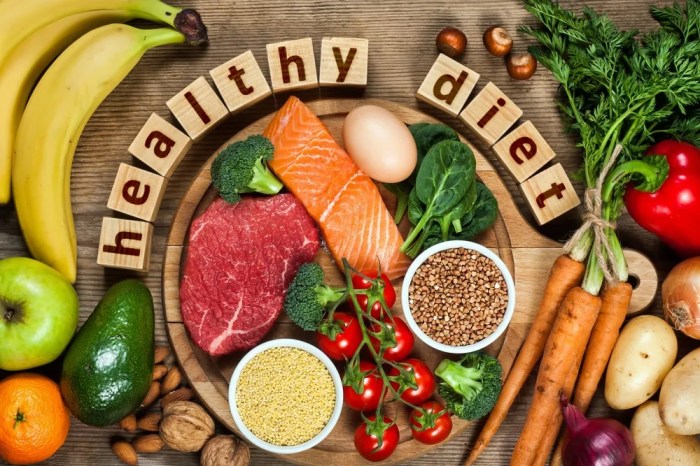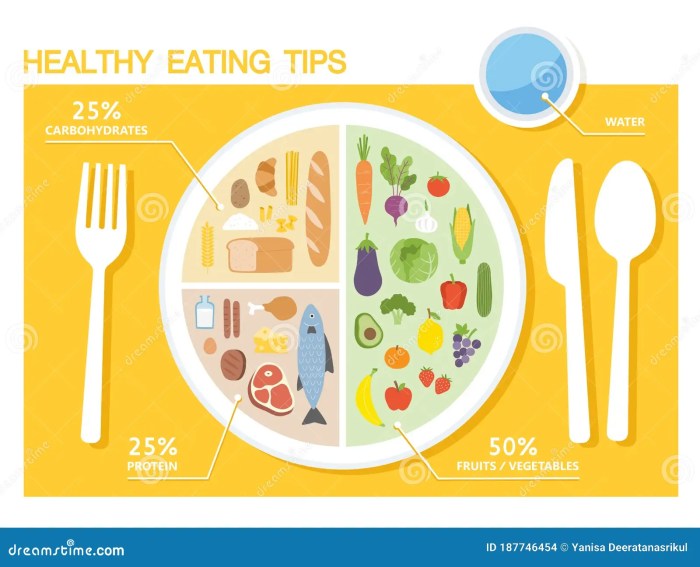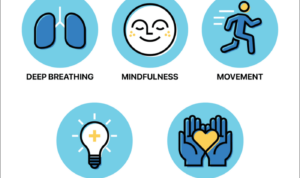Balanced Diet Tips set the stage for a healthy lifestyle journey, diving into the importance of nutrition and well-being with a fresh perspective. Get ready to explore the key components of a balanced diet and uncover practical strategies for success.
Importance of a Balanced Diet

Eating a balanced diet is essential for maintaining overall health and well-being. It provides the necessary nutrients that our bodies need to function properly and stay healthy.
Key Nutrients in a Balanced Diet
- Protein: Helps build and repair tissues, muscles, and cells.
- Carbohydrates: Provide energy for daily activities.
- Fats: Important for brain function and hormone production.
- Vitamins and Minerals: Support various bodily functions and help prevent diseases.
- Fiber: Aids in digestion and helps maintain a healthy weight.
Benefits of Following a Balanced Diet
- Improved Energy Levels: Proper nutrition keeps you energized throughout the day.
- Weight Management: Helps in maintaining a healthy weight and prevents obesity.
- Enhanced Immune System: Nutrient-rich foods boost immunity and fight off illnesses.
- Reduced Risk of Chronic Diseases: A balanced diet lowers the risk of conditions like heart disease, diabetes, and cancer.
Impact of a Balanced Diet on Health
A balanced diet can positively impact different aspects of health, such as:
- Physical Health: Supports growth, development, and overall physical well-being.
- Mental Health: Nutrient-rich foods can help improve cognitive function and mood.
- Skin Health: Eating a variety of nutrients can lead to clearer and healthier skin.
- Digestive Health: Fiber-rich foods aid digestion and prevent digestive issues.
Components of a Balanced Diet
Eating a balanced diet is essential for maintaining good health and overall well-being. A balanced diet consists of a variety of foods from different food groups, each providing essential nutrients that our bodies need to function properly.
Essential Food Groups
There are five essential food groups that make up a balanced diet:
- Vegetables: Recommended daily intake is 2-3 cups. Examples include spinach, carrots, and broccoli.
- Fruits: Recommended daily intake is 1.5-2 cups. Examples include apples, bananas, and oranges.
- Grains: Recommended daily intake is 6-8 ounces. Examples include whole wheat bread, brown rice, and oats.
- Proteins: Recommended daily intake is 5-6.5 ounces. Examples include lean meats, poultry, fish, beans, and nuts.
- Dairy: Recommended daily intake is 3 cups. Examples include milk, yogurt, and cheese.
Importance of Portion Control
While it’s important to include a variety of foods from different food groups in your diet, portion control is equally crucial. Consuming the right amount of each food group helps in maintaining a healthy weight and prevents overeating.
Tips for Achieving a Balanced Diet: Balanced Diet Tips
Eating a balanced diet is essential for maintaining overall health and well-being. Here are some practical tips to help you achieve a balanced diet:
Planning Meals
- Plan your meals ahead of time to ensure you include a variety of food groups.
- Make a grocery list based on your meal plan to avoid impulse buys.
- Include a source of protein, whole grains, fruits, vegetables, and healthy fats in each meal.
Concept of Moderation
- A balanced diet is all about moderation – enjoy your favorite treats in small portions.
- Aim for balance over time, rather than perfection in every meal.
- Avoid labeling foods as “good” or “bad” and focus on overall dietary patterns.
Incorporating Fruits and Vegetables
- Add fruits and vegetables to every meal and snack for added nutrients and fiber.
- Experiment with different cooking methods and recipes to make fruits and vegetables more appealing.
- Keep a variety of fresh, frozen, and canned fruits and vegetables on hand for convenience.
Role of Hydration, Balanced Diet Tips
- Stay hydrated by drinking plenty of water throughout the day.
- Aim to consume at least 8-10 cups of water daily, more if you are active or in hot weather.
- Include hydrating foods like watermelon, cucumbers, and soups in your meals.
Common Mistakes to Avoid

Maintaining a balanced diet can be challenging, especially with the abundance of food choices and conflicting nutrition advice. Here are some common mistakes to avoid to stay on track with your health goals.
Risks of Fad Diets and Extreme Eating Habits
Many people fall into the trap of trying fad diets or extreme eating habits in search of quick results. However, these approaches often lead to nutrient deficiencies, metabolic issues, and unsustainable weight loss. It’s important to prioritize long-term health over short-term fixes.
Overcoming Cravings and Making Healthier Food Choices
Cravings for unhealthy foods can derail even the best intentions. To overcome cravings, focus on incorporating nutrient-dense foods like fruits, vegetables, whole grains, and lean proteins into your meals. Planning ahead and having healthy snacks on hand can also help you make better food choices.
Importance of Consistency and Long-Term Commitment
Consistency is key when it comes to maintaining a balanced diet. It’s important to make healthier choices a habit rather than a temporary change. By committing to a balanced diet in the long term, you can reap the benefits of improved energy levels, mood, and overall well-being.


